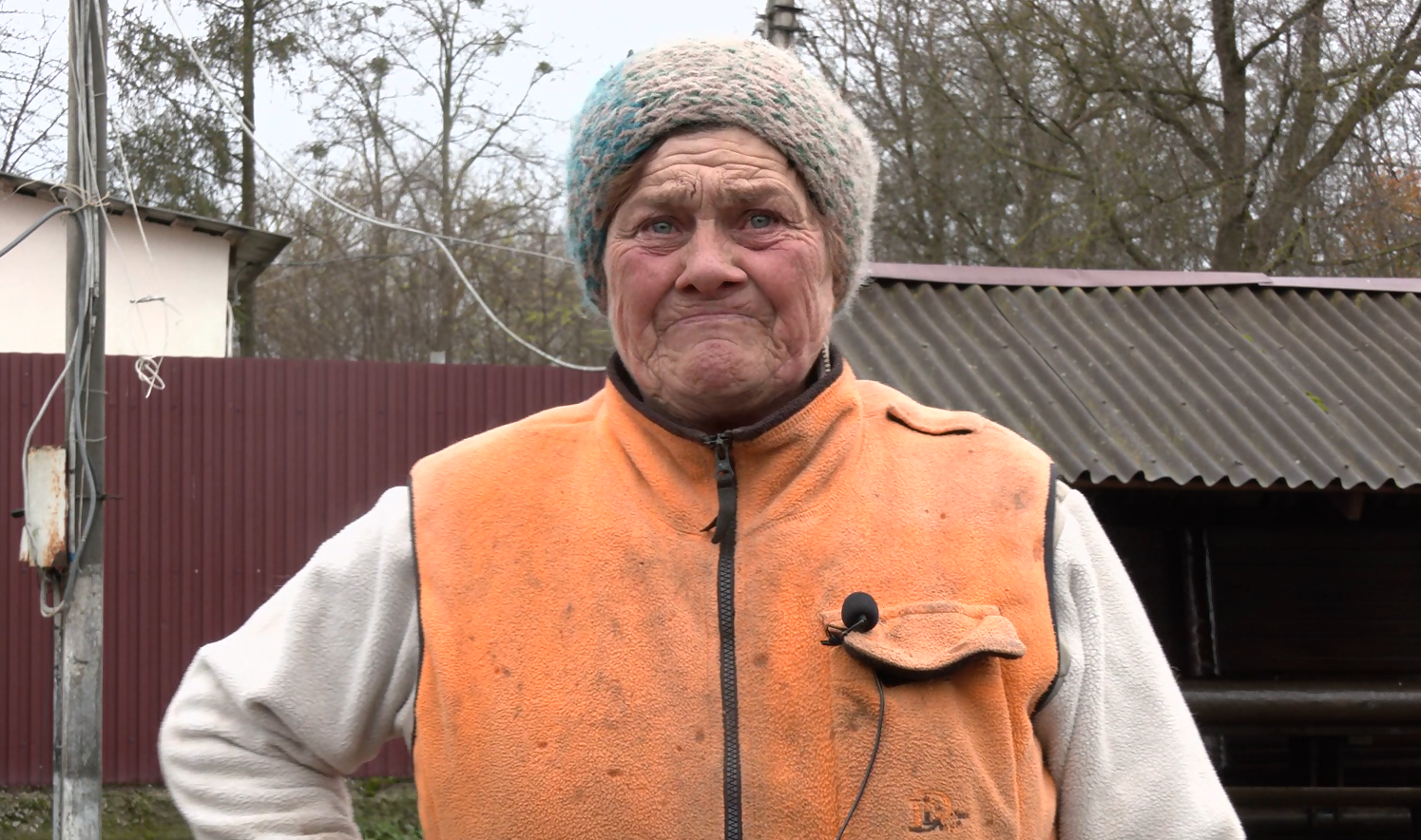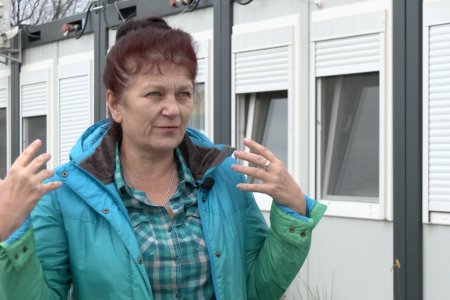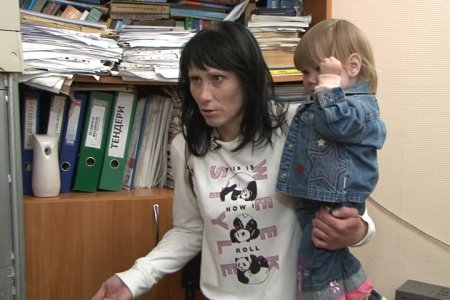There was no one, and it was already dark. Two guys were walking. I said: “Guys, what are you doing here?” — “Grandma, go home.” The children and the deceased son-in-law were at home, and I spent the night in the village council, on the ground, and got a cold in my bladder. How many times I went into the forest, how many tanks I saw, how many things! The Russians left behind four large missiles and, in the depths of the woods, anti-tank mines. Eighteen pieces were left. On the 25th or 26th [Feb], they entered the school. They took over the pub, the club, and the village council. They occupied everything, saw that we have a plant here where grain is dried, and went there. Thank God the store’s owner, Irina, began giving us food, and it became a little easier.
They didn’t torture people here. They tortured in Chervonyi Rih. I was once driving from the dachas, and a tank came towards me. I pressed myself against the wall, and six people above me pointed machine guns at me.
One got out of the tank and said: “Grandma, is that you?” I said: “Yes.” “Everyone, stop,” he said, “we don’t touch peaceful people.” They turned around abruptly and left. There were three columns. I met Kadyrov’s men and Buryats. I said: “Guys, give me a cigarette.” Kadyrovets asked me: “Grandma, what kind of power do you want?” I crossed my arms over my chest and said: “I don’t care what kind of power; the main thing is that there is peace on earth.” And the second one, the narrow-eyed one, gave me a pack. I saw our guy, about 25 years old, in the first car, and he was pale.
I came home and told my deceased son-in-law: “Sasha, get a bottle of water.” I brought them a bottle of water, and the Russian said: “Grandma, do you want to poison us?” I said: “No! If you want, I’ll take a sip.” I drank, and only then did they drink. When the column started moving, that guy was crying. He said: “Grandma, I’m from the Zhytomyr region; I’m in captivity.” And after that, I didn’t see him.
We have, of course, been through a lot. On 8 March, something crashed near me: a shell or something else. I fell on the shovel standing next to me and got hurt. There was so much equipment here... The Russians sat in the gazebo, and I gathered their rations to distribute to the children and took them to the dachas. This family is still grateful to me for my help. I’m going to Uncle Tolya tomorrow and will check on them. There were seven of them: three children and four adults.

First, the Russians occupied Sosnivka, Chervonyi Rih and then Shybene. When ours came in, they dug up a 51-year-old man from Ivankiv. They searched for his identity. There was a division of Russians at the school and in the pub. That’s it. There was a medical unit at the club. I drove by, and Kadyrov’s men were waiting for a doctor, and a truck was standing with dried meat. They said: “Grandma, take it.” So I carried groceries to the dacha. The Russians saw that my neighbor had a well. They brought their pump and took water in cubes. They took it to Chervonyi Rih. We lived, as they say, on a powder keg.
We bowed to everyone when we went out and wished them health. But we felt sick in our souls... It was painful, and I even turned gray. We had Russians, Belarusians, and Kadyrovites. They took water, and one asked: “What are you planting in the garden, grandma?” — “Beets, potatoes, cucumbers.” — “What are cucumbers?” And mine were spoiled. One asked the other: “Can I eat them?” He answered: “No, but grandmothers eat.” This is how we survived.
The Russians came into the house. They laid the daughter on the ground under the machine gun, threw glass bottles into the oven, and threw them into the house. They were looking for something but, in the end, they found nothing.
We survived as best we could. We helped each other. We had two women here. The late Olia wanted onions and meat — they went to Chervonyi khutir, to Nebrat. And there were Russians everywhere. They went, and only their bones were found. The girl (on this side) was not allowed outside by her uncle. However, the shell hit the wall of the house, and she was killed by shrapnel — ten years old child. One house burned down, and the second, third, and fourth were destroyed. We had real Buryats here. We were walking with our daughter and late son-in-law, and they were loading their battered car, so they checked us plenty.
A lot of them came very unexpectedly. We were afraid to walk; everyone was frightened. I would have shot them if they had given me a machine gun! I would kill them all. What were they doing here? Why did they come here? Shoot civilians? Do they want our land? They don’t want anything else. They want to take the whole country, but it doesn’t work out.



